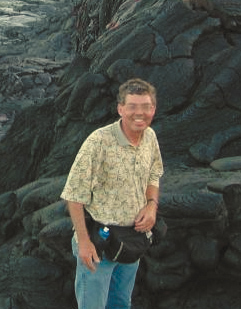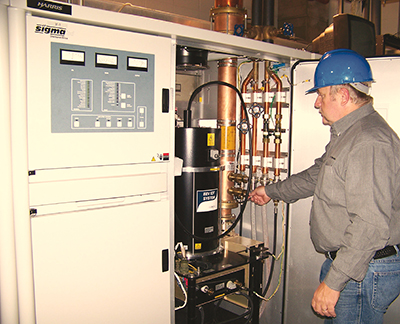The professional video industry's #1 source for news, trends and product and tech information. Sign up below.
You are now subscribed
Your newsletter sign-up was successful

Doug Lung
Noting that this makes column number 240 for me reminds me I’ve been writing for TV Technology for more 20 years!
This month I was planning to report on the new version of the FCC’s TVStudy software, which promises interesting new features, but my deadline preceded its release. This gives me an opportunity to do something I probably should have done before— take a look at the role of the RF engineer in broadcasting, the opportunities available today and ways to learn more about broadcast RF engineering.
You don’t find job listings for “broadcast RF engineer” today. When I first got into broadcasting in the late1960s, every TV station was required to have an FCC First Class Radiotelephone licensed operator on duty whenever the station was on the air. Transmitter readings were required every half hour. I can see why the FCC mandated this as those old TV transmitters demanded a lot of attention.
HELP WANTED
As transmitters became more reliable, the FCC relaxed the rules and the “engineer on duty” was handed additional responsibilities. Reliable remote control systems allowed them to assist master control, for example. Back then that help was welcomed as we were still using 16mm film and 2-inch quad videotape machines. The Sony Betacart and hard disk video server hadn’t been invented yet; fiber-optic networks didn’t exist; and distribution of regular TV programming via satellite didn’t happen until after Westar 1 was launched in 1974.
Today, few stations have a transmitter engineer on duty 24/7. Transmitter logging is handled by computer and data logging is required only to demonstrate compliance with FCC rules. Most stations still have at least one engineer who is able to keep the transmitter on the air, although with the introduction of higher-efficiency solid-state transmitters for UHF TV, I’d expect fewer hours will be devoted to transmitter maintenance.
TV stations need someone who knows how RF works and can maintain FCC compliance even if they have new solidstate transmitters. After the DTV transition, most transmitter engineers stopped manually maintaining amplitude and phase linearity, group-delay and frequency response.
The professional video industry's #1 source for news, trends and product and tech information. Sign up below.
However, those same characteristics impact the digital signal’s signal-to-noise ratio (SNR) and thus have a direct impact on the ability of viewers to receive a TV station to a far greater extent than the same errors on an analog signal.
ATSC receivers will fail before the SNR hits the theoretical 15 dB threshold. The ATSC target is 27 dB—anything worse than that and it will impact coverage. Thanks to the DTV “cliff-effect,” without an engineer checking this no one may notice that the automatic correction has failed until viewers stop receiving the signal!
Today, in addition to transmitter and FCC technical compliance work, a broadcast engineer who knows RF is also likely to be involved in maintaining and setting up microwave links; resolving problems with 2 GHz ENG microwave receive systems; and perhaps also dealing with wireless microphone interference, and now registration.
That engineer is also likely to be the one to get the calls when viewers are having reception problems. As the number of people familiar with how the RF works declines, the few remaining often end up “on-call” 24/7, especially in smaller markets.
Most of the engineers I know take a personal interest in the signal their station provides and can handle that responsibility and inconvenience if the rest of the station staff and management understand what they do and support them.
GOOD NEWS, BAD NEWS

TV stations need someone who knows how RF works and can maintain FCC compliance even if they have new solid-state transmitters. The good news for someone who’s interested in broadcast RF engineering is that the number of experienced RF engineers at stations has been dropping for so long that there are few left and many of them will be retiring soon. The bad news is many stations don’t yet realize they’ll need to replace them.
Of course, the entire concept of “broadcasting” is changing and over-the-air RF is only one way of getting programming to viewers, albeit still an important one. New skills are required—ATSC mobile DTV is IP-based and the next-generation broadcast platform is likely to be as well. To be successful, any broadcast engineer must have an understanding of IP networking, audio and video encoding, and perhaps some computer programming skills as well.
While a TV station is a great spot to get into broadcast engineering and gain experience, don’t overlook opportunities at broadcast equipment manufacturers. It has been a difficult time for these companies, but as stations cut back on their own engineers they are looking to manufacturers and service companies for support.
Contract engineering is another opportunity— many radio stations already rely on contract engineers to keep them on the air and in compliance with FCC technical rules. As TV transmitters become more reliable, I expect more TV stations will share engineers, although no station wants to be off the air while a shared engineer is working on another station’s facility.
If you’ve thought about working with RF at a broadcast station or improving your skills if already employed, you aren’t likely to find a course on this at your local community college or technical school, although learning a technical trade is a good way to pick up troubleshooting skills. One excellent engineer I know started as a Xerox repairman! Most TV courses focus on production topics—editing, camera work, directing and such. There are exceptions.
The best place to look for these opportunities is at your local Society of Broadcast Engineering chapter. The organization’s website (www.sbe.org) has a list of chapters. Check the “Education” tab for details on workshops, webinars and a listing of SBE Certified Schools. SBE offers training materials and certifications that can be a valuable addition to a resume.
Take advantage of the NAB Show Broadcast Engineering Conference and the IEEE Broadcast Technology Symposium where part of the conference is devoted to tutorials on the latest technology. This year’s IEEE BTS is in San Diego. See http://bts.ieee.org/ for details on it and other IEEE broadcast technology society activities.
I realize some may object to my use of “engineer” in reference to someone who may not have a BSEE or state engineering certification. The FCC doesn’t recognize a “Chief Engineer,” but does require all stations have a designated “Chief Operator” responsible for technical compliance.
However, in the broadcast industry, the term “engineer” is commonly used for positions that might otherwise be called “technician.” I suspect this because keeping a broadcast facility on the air and looking good under a variety of conditions requires a bit more than basic technical skills.
I’d be interested in your comments on the state of broadcast RF engineering today. Comment on the article on the TV Technology website or drop me an email atdlung@transmitter.com.

Doug Lung is one of America's foremost authorities on broadcast RF technology. As vice president of Broadcast Technology for NBCUniversal Local, H. Douglas Lung leads NBC and Telemundo-owned stations’ RF and transmission affairs, including microwave, radars, satellite uplinks, and FCC technical filings. Beginning his career in 1976 at KSCI in Los Angeles, Lung has nearly 50 years of experience in broadcast television engineering. Beginning in 1985, he led the engineering department for what was to become the Telemundo network and station group, assisting in the design, construction and installation of the company’s broadcast and cable facilities. Other projects include work on the launch of Hawaii’s first UHF TV station, the rollout and testing of the ATSC mobile-handheld standard, and software development related to the incentive auction TV spectrum repack. A longtime columnist for TV Technology, Doug is also a regular contributor to IEEE Broadcast Technology. He is the recipient of the 2023 NAB Television Engineering Award. He also received a Tech Leadership Award from TV Tech publisher Future plc in 2021 and is a member of the IEEE Broadcast Technology Society and the Society of Broadcast Engineers.
